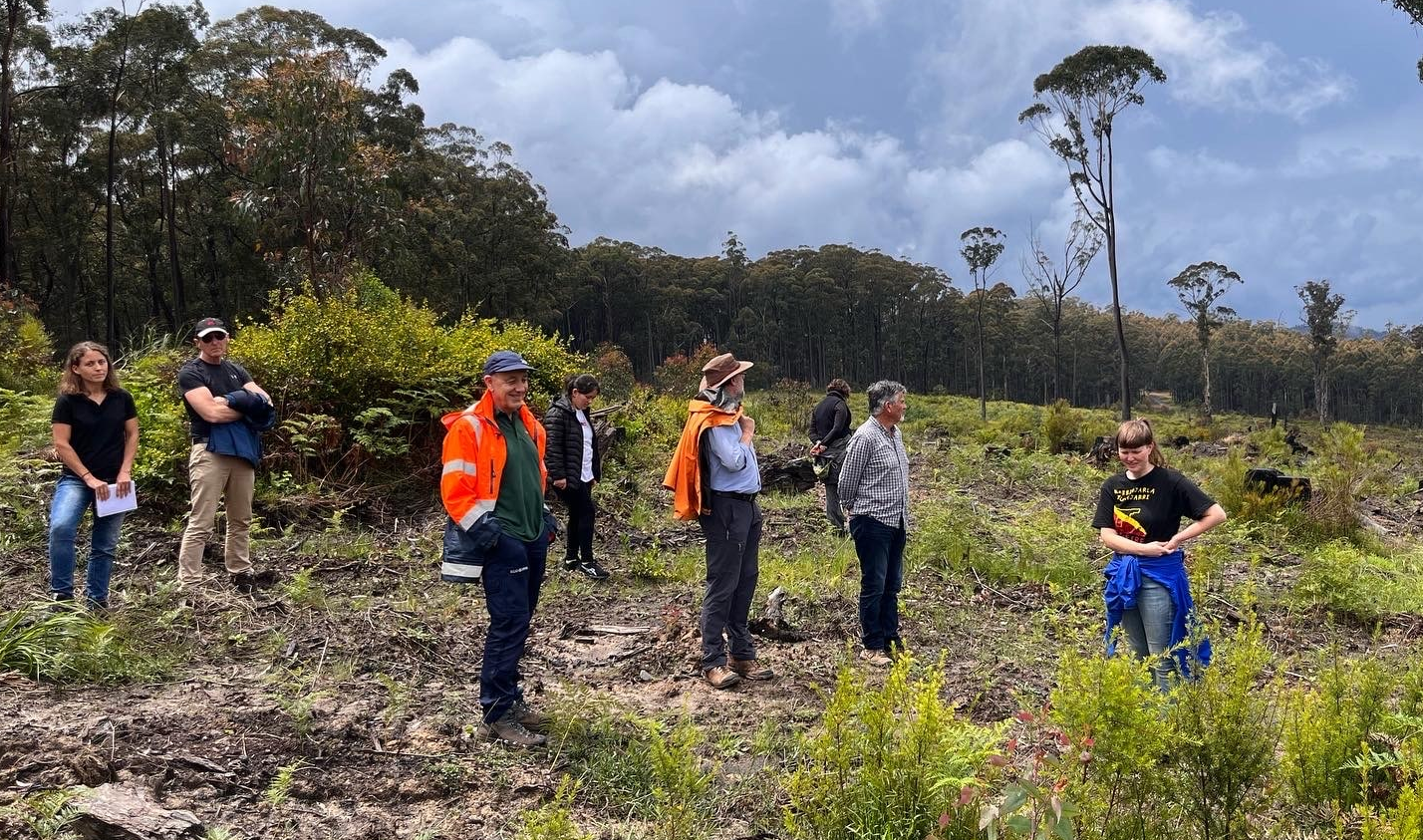The beginning...
In early 2021, a group of people came together to talk about Gippsland’s forests. They had different backgrounds, different jobs and beliefs, and different stories and lives, but what they had in common was a passion for trees and forests and a strong need to do something positive about the threats facing Gippsland’s landscapes.
The group settled on a tried and tested international process grounded in talking and listening called The Forest Dialogue. The initiative had never been trialled in Australia before, but its success in resolving historical conflicts between forest users and crafting and leading sustainable forestry management projects in places like Brazil and Kenya has been proven over the two decades the Yale University-based program has been running in forests across the globe.
And so, the Gippsland Forest Dialogue was founded.
With the guidance and support of the international Forest Dialogue team and the Rendere Trust, an advisory group was formed to shepherd the process and recruit new members to the Dialogue. Members come from all walks of life and across the community, cultural, business and environmental sectors that are invested in seeing Gippsland’s forests thrive.
The Dialogue is being conducted across the Traditional Lands of the Gunaikurnai, Bunurong, Wurundjeri Woi-Wurrung, Taungurung peoples and into the lands of the First Nations of far East Gippsland. We acknowledge that many of the issues we will discuss are the product of settlement and that a seat at the table of the Dialogue is always open for Traditional custodians.
In addition to our commitments to Traditional Owners, the GFD welcomes Gippsland residents, farmers, tourism operators, timber businesses and business associations, bush stewards, tourists, land carers, environment groups, fire managers, community groups and recreationists to be part of the Dialogue.
Members of the Gippsland Forest Dialogue have no collective association with interest groups, political parties or movements. We are participating as individuals, and do not represent any organisations, companies or other bodies we may be associated with or employed by outside the Dialogue process.
"Conservation and multi-use forests are failing to successfully tackle our biodiversity and climate emergencies while balancing the varying needs of all. I’m here to find a way forward”.
Daniel Wright - Australian Sustainable Hardwoods

We are working to build trust through discussion, shared learning and approaching forest management issues from every point of view.
How it works
The Gippsland Forest Dialogue aims to build understanding and agreement among stakeholders around the opportunities, challenges and knowledge gaps related to [the management and lack of management of] forests in Gippsland.
The Dialogue creates a space for diverse stakeholders to come together to talk about how best to look after the region’s forests, for people and planet, and to explore, agree on and facilitate collaborative actions that bring about these positive changes.
The Dialogue is independent and local. We have no government funding, no preconceived decisions or agendas and no collective association with peak bodies, interest groups, political parties or movements. We do not favour the interests of one group or sector and all options and opportunities are on the table. We want to learn from the lessons of the past and try to succeed where previous attempts have failed.
Our international partner - The Forests Dialogue - has facilitated more than 90 dialogues on contentious issues in forest management across the globe over the past 20 years. These are normally multi-stakeholder engagements over 1-4 days with a mix of field visits, presentations and facilitated discussions, working to identify common areas of agreement and disagreement (fracture-lines), discuss and hopefully break deadlocks and create real, meaningful change by giving participants the mandate to determine outputs and outcomes.